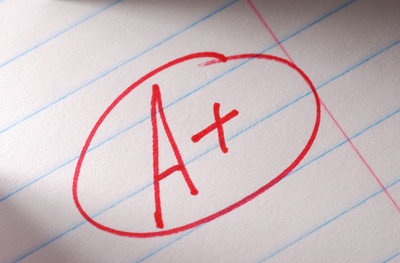The University of Denver’s official website states: “Outstanding academic achievement among undergraduates … is recognized through the Dean’s List and Hornbeck Scholars List.”
For a student to be posted on either of these accredited documents, they must be enrolled in at least 12 credit hours and record a GPA of 3.75 – 3.99 to make the Dean’s List and a 4.0 to be considered a Hornbeck Scholar.
In the Spring Quarter of 2023, nearly 2,000 undergraduate students found their names posted on these prestigious documents. In a population of over 6,000 undergraduates and counting, that accounts for roughly one-third of the undergraduate student body.
In an academic landscape where A’s are becoming more and more common, especially at private institutions, the fear of grade inflation is very real. Much like traditional monetary inflation, the threat of pumped-up grades is that A’s begin to lose their value, and acceptance into universities, graduate programs and jobs will rely not on grades, but on insignificant minutiae that do not reflect that applicant’s abilities.
In June of 2001, Harvard reported that 91% of its undergraduates received honors that year, nearly triple the rate of DU’s current handouts. According to national trends, Harvard’s number of honors students has likely increased.
Tim Donahue, an English teacher for Greenwich Country Day School in Connecticut, claims that, for teachers, “…it’s high time to tighten the belt,” as he believes stricter grading will enhance learning and garner more thoughtful students.
He asserts that the current state of grading “… has that looming sense of climate denial, propped up by wishful thinking.”
However, I find the comparison between the climate crisis and the supposed grading crisis rather crude. There is much uncertainty on how grade inflation actually impacts the world, whereas numerous studies have found that climate change will lead to global collapse.
With that in mind, I don’t feel as though any sort of crisis is at hand when it comes to student grades. Although I agree that hand-outs often come at the cost of true learning, I think it is more important to acknowledge the reality that most students are battling for their own survival in a late-capitalistic landscape, one where missing a few math problems in freshman-year algebra might cost that student thousands-upon-thousands of potential dollars in their future.
Of course, that is only speculation, but there is no denying that at the baseline of every student’s desires exists the hope of a comfortable wage and a happy life, and we can’t pretend that grades do not play a role in that process.
The entire capitalist system, education or otherwise, relies on comparison, on being “outstanding” among one’s peers. So why have we created an environment where one person’s success must come at the expense of another’s? Why do we tremble with fear and label it “grade inflation” when more students are meeting the arbitrary standard of success?
The fear is that an abundance of 4.0s will make it difficult to measure who is truly the better student, the better candidate, or the hardest worker. But what do these comparisons really gain us?
Perhaps the economy grows more efficient when the best students accept the most difficult, highest-paying jobs. Perhaps a new wave of enlightened politicians are elected because of the intense, competitive education they undertook in high school and college. Perhaps the lazy 3.4 GPA students wind up slaving away in the Amazon factory, holding in the Gatorade they guzzled during their mandated two-minute break so they might beat out the factory robots threatening to steal their jobs.
Historically, these outcomes have not been achieved (with the exception of the third), and our competitive drive has, more often than not, caused cheating, shortcutting, and greed. Regardless, I question if a maximized economy and the perfect senate of politicians is worth the sacrifice it takes to get there, that is, cutthroat competition in an already-divided nation.
I don’t believe that DU is shoving A’s down our throats, nor would I care if they did. I don’t care that the overwhelming majority of Harvard students make honors (aren’t they supposed to be the “best” students in the country?).
I care that education equips students for the challenges of human life, and sometimes that means holding a student’s hand for a brief moment, showing them compassion amidst a hurricane of competition.
I’m not saying that students shouldn’t be pushed to obtain deeper learning of the subject at hand; however, I do not think that the enhanced education that the likes of Donahue suggest is to the benefit of the human race.
I simply offer the idea that humanity is at its best not when we are the most productive or brilliant, but when we set those goals aside for a moment, when we acknowledge the inherent imperfections in one another, and when we offer grace instead of criticism.











